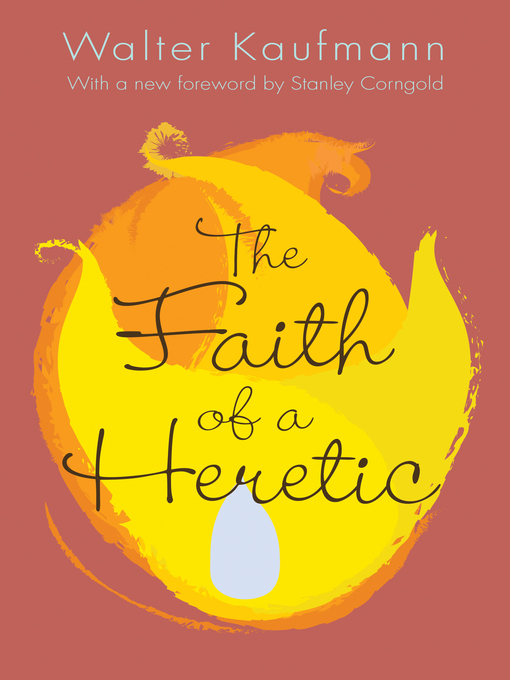Originally published in 1959, The Faith of a Heretic is the most personal statement of the beliefs of Nietzsche biographer and translator Walter Kaufmann. A first-rate philosopher in his own right, Kaufmann here provides the fullest account of his views on religion. Although he considered himself a heretic, he was not immune to the wellsprings and impulses from which religion originates, declaring it among the most vital and radical expressions of the human mind. Beginning with an autobiographical prologue that traces his evolution from religious believer to "heretic," the book touches on theology, organized religion, morality, suffering, and death—all examined from the perspective of a "quest for honesty." Kaufmann also subjects philosophy's faith in truth, reason, and absolute morality to the same heretical treatment. The resulting exploration of the faiths of a nonbeliever in a secular age is as fresh and challenging as when it was first published.
In a new foreword, Stanley Corngold vividly describes the intellectual and biographical milieu of Kaufmann's provocative book.
- Available Now
- New eBooks for Adults
- New eBooks for Teens
- New eBooks for Kids
- Most Popular
- Try Something Different
- See all
- Available Now
- New Audiobooks for Adults
- New Audiobooks for Kids
- New Audiobooks for Teens
- Most Popular
- Try Something Different
- See all

